第378章
I should very much like to see you again, but you would find a visit here very dull, for we feel very old and have no amusement, and lead a solitary life. But we intend in a few weeks to spend a few days in London, and then if you have anything else to do in London, you would perhaps come and lunch with us. (My father had the pleasure of seeing Mrs. Haliburton at his brother's house in Queen Anne Street.)Believe me, my dear Sarah, Yours gratefully and affectionately, CHARLES DARWIN.
[The following letter was called forth by the publication of a volume devoted to the criticism of the 'Power of Movement in Plants' by an accomplished botanist, Dr. Julius Wiesner, Professor of Botany in the University of Vienna:]
CHARLES DARWIN TO JULIUS WIESNER.
Down, October 25th, 1881.
My dear Sir, I have now finished your book ('Das Bewegungsvermogen der Pflanzen.'
Vienna, 1881.), and have understood the whole except a very few passages.
In the first place, let me thank you cordially for the manner in which you have everywhere treated me. You have shown how a man may differ from another in the most decided manner, and yet express his difference with the most perfect courtesy. Not a few English and German naturalists might learn a useful lesson from your example; for the coarse language often used by scientific men towards each other does no good, and only degrades science.
I have been profoundly interested by your book, and some of your experiments are so beautiful, that I actually felt pleasure while being vivisected. It would take up too much space to discuss all the important topics in your book. I fear that you have quite upset the interpretation which I have given of the effects of cutting off the tips of horizontally extended roots, and of those laterally exposed to moisture; but I cannot persuade myself that the horizontal position of lateral branches and roots is due simply to their lessened power of growth. Nor when I think of my experiments with the cotyledons of Phalaris, can I give up the belief of the transmission of some stimulus due to light from the upper to the lower part. At page 60 you have misunderstood my meaning, when you say that Ibelieve that the effects from light are transmitted to a part which is not itself heliotropic. I never considered whether or not the short part beneath the ground was heliotropic; but I believe that with young seedlings the part which bends NEAR, but ABOVE the ground is heliotropic, and Ibelieve so from this part bending only moderately when the light is oblique, and bending rectangularly when the light is horizontal.
Nevertheless the bending of this lower part, as I conclude from my experiments with opaque caps, is influenced by the action of light on the upper part. My opinion, however, on the above and many other points, signifies very little, for I have no doubt that your book will convince most botanists that I am wrong in all the points on which we differ.
Independently of the question of transmission, my mind is so full of facts leading me to believe that light, gravity, etc., act not in a direct manner on growth, but as stimuli, that I am quite unable to modify my judgment on this head. I could not understand the passage at page 78, until Iconsulted my son George, who is a mathematician. He supposes that your objection is founded on the diffused light from the lamp illuminating both sides of the object, and not being reduced, with increasing distance in the same ratio as the direct light; but he doubts whether this NECESSARYcorrection will account for the very little difference in the heliotropic curvature of the plants in the successive pots.
With respect to the sensitiveness of the tips of roots to contact, I cannot admit your view until it is proved that I am in error about bits of card attached by liquid gum causing movement; whereas no movement was caused if the card remained separated from the tip by a layer of the liquid gum. The fact also of thicker and thinner bits of card attached on opposite sides of the same root by shellac, causing movement in one direction, has to be explained. You often speak of the tip having been injured; but externally there was no sign of injury: and when the tip was plainly injured, the extreme part became curved TOWARDS the injured side. I can no more believe that the tip was injured by the bits of card, at least when attached by gum-water, than that the glands of Drosera are injured by a particle of thread or hair placed on it, or that the human tongue [is so] when it feels any such object.
About the most important subject in my book, namely circumnutation, I can only say that I feel utterly bewildered at the difference in our conclusions; but I could not fully understand some parts which my son Francis will be able to translate to me when he returns home. The greater part of your book is beautifully clear.
Finally, I wish that I had enough strength and spirit to commence a fresh set of experiments, and publish the results, with a full recantation of my errors when convinced of them; but I am too old for such an undertaking, nor do I suppose that I shall be able to do much, or any more, original work. I imagine that I see one possible source of error in your beautiful experiment of a plant rotating and exposed to a lateral light.
With high respect and with sincere thanks for the kind manner in which you have treated me and my mistakes, I remain, my dear Sir, yours sincerely, CHARLES DARWIN.